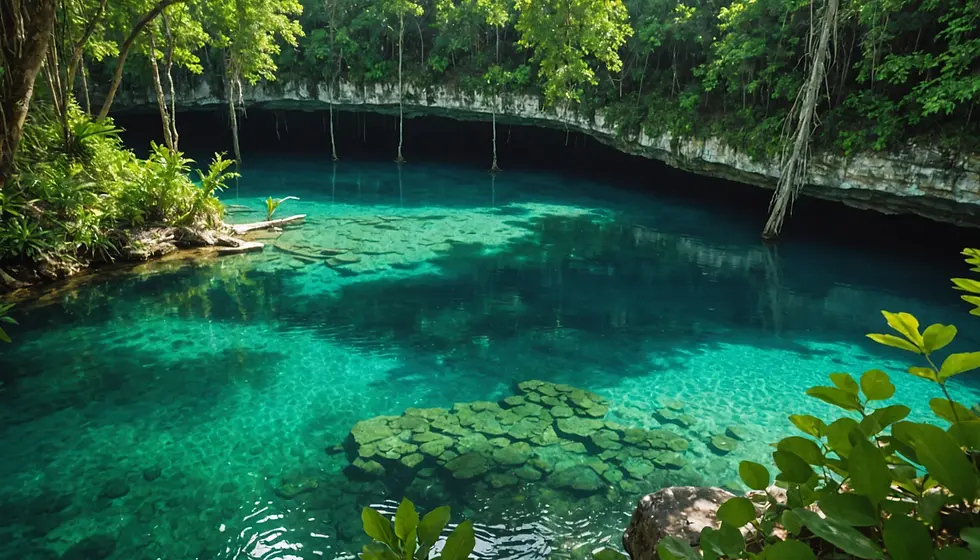Ultimate Guide to the Best Diving in the Galapagos Islands
- Kim Williamson

- Dec 13, 2024
- 4 min read
If you're a diving enthusiast, the Galapagos Islands should be at the top of your bucket list. This archipelago, located in the Pacific Ocean, is not just famous for its unique wildlife on land; its underwater life is equally jaw-dropping. With vibrant marine species and stunning underwater landscapes, the Galapagos offers amazing dive spots for everyone, from beginners to seasoned divers. In this guide, you'll discover the ten best diving locations in the Galapagos, each showcasing its unique charm and adventure.
1. Wolf Island
Wolf Island is celebrated for its breathtaking underwater formations and diverse marine life. Here, you can encounter hammerhead sharks, whale sharks, and sometimes manta rays. The underwater caves and cliffs create an enthralling environment for exploration. Divers have reported seeing schools of hammerheads numbering over 100 during certain times of the year.

2. Darwin Island
Regarded as one of the world's premier dive spots, Darwin Island is essential for serious divers. The area boasts rich biodiversity due to nutrient-packed currents. Expect to see sizable schools of fish, playful sea lions, and a variety of unique sharks. During specific seasons, such as July to November, divers can encounter whale sharks there regularly.

3. Gordon Rocks
Situated near Santa Cruz Island, Gordon Rocks is known for its robust currents that draw an array of marine species. This dive site is perfect for more experienced divers ready to explore stunning underwater sights, including schools of barracuda and reef sharks. The site is known to experience visibility of up to 30 meters, allowing divers to appreciate the volcanic formations.

4. Kicker Rock (Leon Dormido)
Kicker Rock, or Leon Dormido, is an iconic dive location distinguished by two towering rock formations. Diving here lets you explore various ecosystems, including rocky reefs and sandy bottoms. Expect to encounter colorful tropical fish, sea turtles, and sea lions. This spot welcomes both snorkelers and divers, providing a well-rounded experience for all.

5. Devil’s Crown
Devil's Crown is a collapsed underwater volcano that has created a circular lagoon, making it a premier diving location. The ring-shaped coral reef teems with life, including turtles, rays, and numerous fish species. Protected from strong currents, the site is ideal for snorkelers and divers, with an impressive biodiversity that draws nature lovers year-round.

6. Punta Vicente Roca
Located on the northwest side of Isabela Island, Punta Vicente Roca features dramatic cliffs and depth variations. This dive site offers a rich marine ecosystem that includes sea lions, marine iguanas, and various fish species. Divers often report sightings of up to three different shark species in a single dive—great hammerhead, whitetip reef, and mako sharks.

7. North Seymour Island
North Seymour Island is a hotspot for divers, known for its rich wildlife and attractive underwater views. Here, you can witness vibrant schools of fish, playful sea lions, and nurse sharks often found resting on the ocean floor. The living coral reefs enhance the diving experience, making it a favorite for underwater photography.

8. Palau Bay
Palau Bay presents a quieter diving experience, ideal for those seeking solitude away from the more popular spots. With clear waters, visibility frequently reaches 20 meters or more. Divers can enjoy watching wrasses, parrotfish, and different rays. The tranquil conditions appeal to beginners ready to immerse themselves in the marine environment.

9. Tortuga Bay
Tortuga Bay is praised for its pristine conditions and diverse underwater ecosystems. The sandy floor and rocky structures make for a unique habitat for lobsters, sea turtles, and various fish species. The calm waters cater to novice divers, providing an opportunity to appreciate the Galapagos' beauty without the stress of strong currents.

10. Floreana Island
Floreana Island is not only notable for its historical significance but also for its vibrant diving locations. The area showcases impressive underwater formations filled with an abundance of marine life, including rays and colorful reef fish. Known for its warm waters, it is another great option for diving enthusiasts seeking excitement and beauty.

Wrapping Up
The Galapagos Islands promise unforgettable diving adventures, making it a top destination for underwater explorers. With its stunning marine life and unique underwater environments, each dive site offers a memorable experience. Whether you're swimming with sea lions or spotting hammerhead sharks, divers will carry home lasting memories. As you plan your diving journey, keep these top ten locations in mind for an enriching adventure in one of nature’s most spectacular marine treasures. Happy diving!








Comments